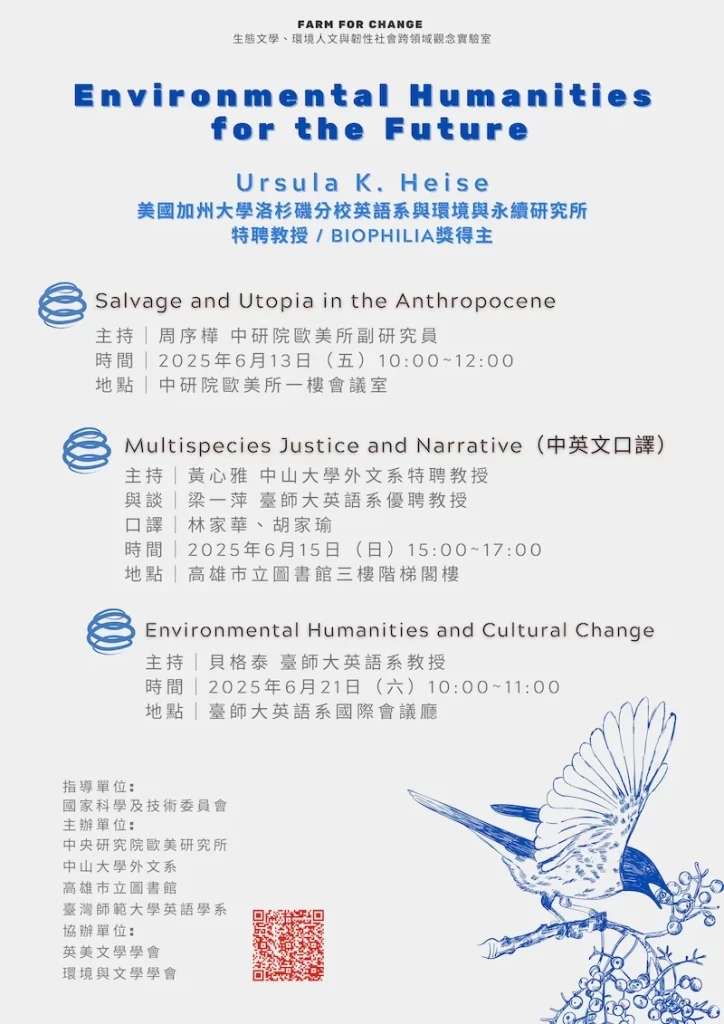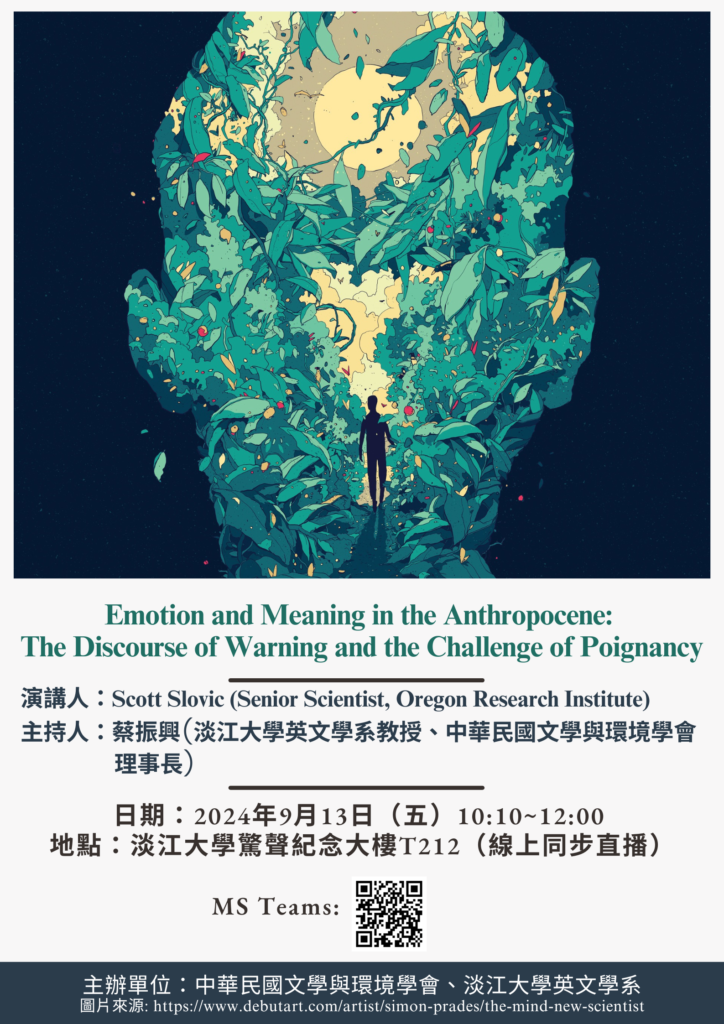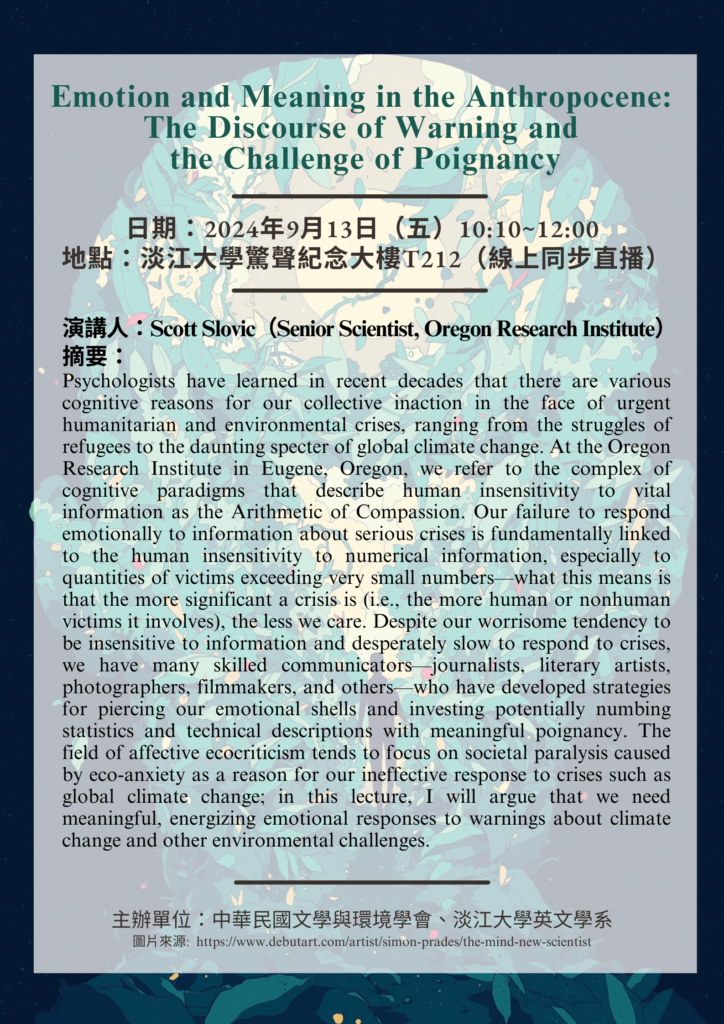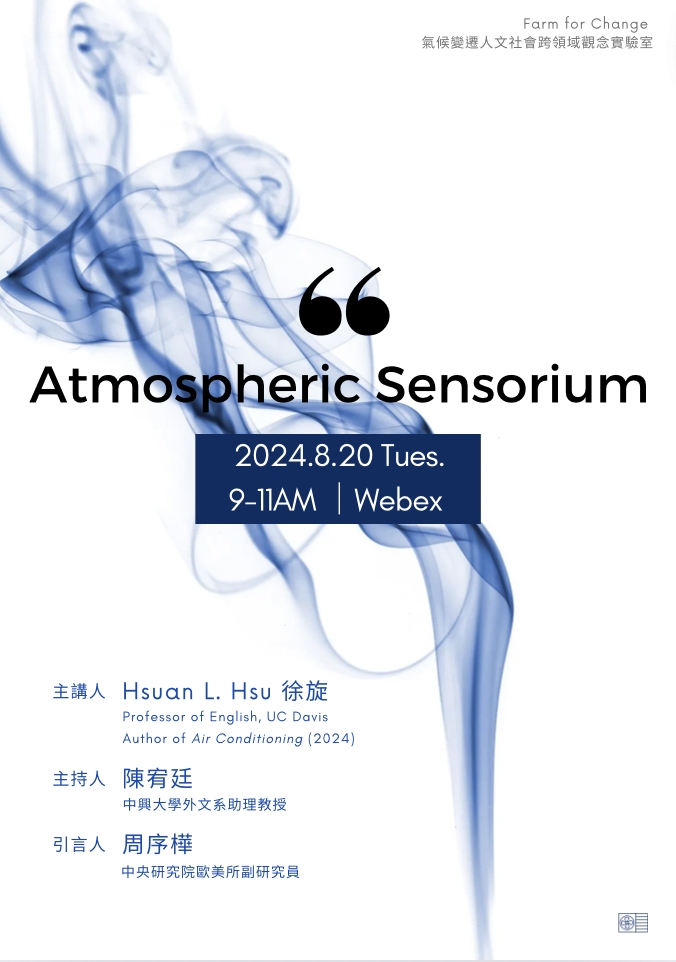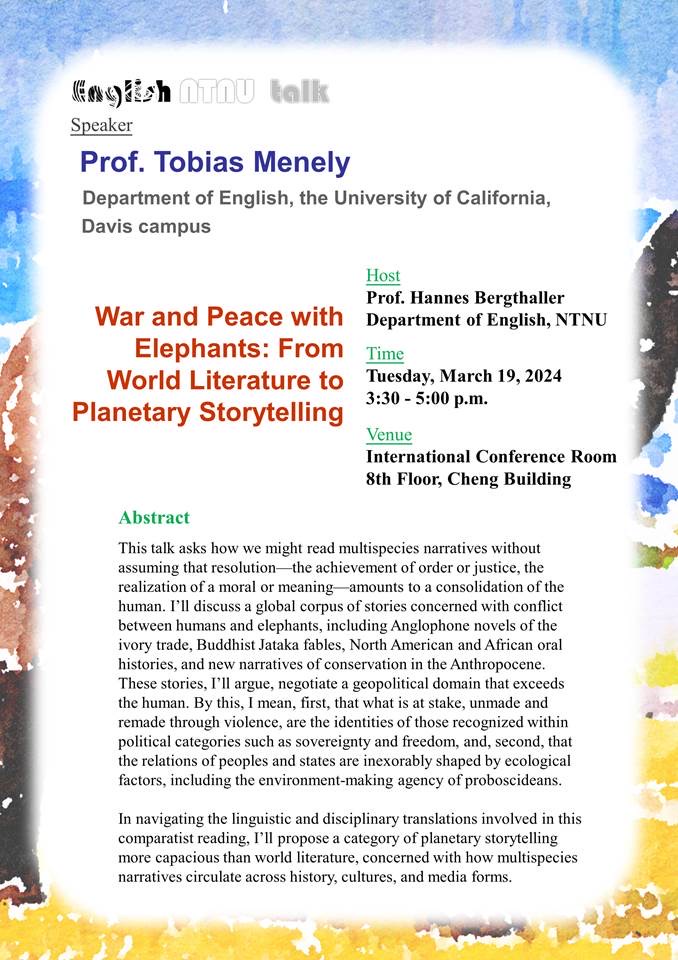▌ 國科會外文學門 2025 年度跨域人文系列講座・第五場論壇 ▌
主題|冷戰風雲之下的「人類世」:淺談環境人文的跨領域研究與實踐
講者|周序樺|中央研究院歐美研究所副研究員
主持|蔡振興|淡江大學英文學系教授
時間|2025年06月07日(六)14:30~16:30
線上|Webex 視訊會議 |連結將於活動前兩天,寄送至報名所使用信箱
報名|https://bit.ly/FLNSTC-20250607,6/4(三)23:59 截止
主辦單位|國科會人文處外文學門
聯絡助理|陳信彰 jessechen0110@gmail.com;林嘉瑩 kelly.cy.lin@gmail.com
——————
▌ 演講簡介 ▌
文學評論如何跨領域?援引哲學、人類學、地理學、精神分析與理論的文學評論,是否為跨領域研究?什麼是有效的「跨」?最近的「跨」有何特色?作為一種方法學,它試圖挑戰何種傳統?在環境人文研究(environmental humanities)中,文學或文學研究扮演什麼角色、又能提供人文甚至是科學研究什麼不同的視野?
西方生態批評(ecocriticism)發展的歷史脈絡顯示,六○、七○年代至今、冷戰與大歷史敘述之下的西方反文化運動(counterculture)召喚實用主義(pragmatism)精神,由看似微不足道的「日常」環境行動出發,奠定環境人文「跨領域」研究的學術視野。但如同大多反文化運動在被主流文化所接納、甚至是受歡迎的同時,環境人文研究也終究必須面對淪為意識形態與政治口號挑戰的宿命。
我將從近日的「人類世」 (Anthropocene)風潮為例,由它所掀起的學術思潮,談談文學研究所遇見的挑戰,並透過提問「人類世是什麼?」反思跨領域研究為文學帶來的機會與困境。對於文學研究者而言,它與之前的性別、族裔、階級與理論等文學評論有何不同?若泛指各環境相關研究的人文領域學科,環境人文研究已暗示其「跨領域」屬性。究竟什麼是跨領域研究?作為一種方法學,跨領域與實踐的關係為何?
——————
▌主講人與主持人簡介 ▌
主講人| 周序樺
美國南加州大學比較文學博士,現任中央研究院歐美研究所副研究員,「Farm for Change」氣候變遷:生態文學、環境人文與韌性社會跨領域觀念實驗室主持人。 曾任中山大學外國語文學系助理教授、副教授;主要研究領域為美國環境文學與環境論述,近年學術志趣包含美國有機農業書寫、後殖民環境論述、亞裔美國環境書寫等。
主持人| 蔡振興
國立臺灣大學外文所比較文學博士。淡江大學英文系教授,為陽明交大「醫療人文淑世計畫」團隊成員,也是現任中華民國文學與環境學會(ASLE-Taiwan)理事長。曾任淡江大學英文系系主任、英美文學學會理事長、中華民國比較文學學會理事長、中華民國文學與環境學會(ASLE-Taiwan)理事長,以及Tamkang Review和《英美文學評論》等主編。主要研究領域為文學理論、史耐德研究、全球暖化論述、生態文學和醫療人文研究。論文發表於Comparative Literature Studies、Neohelicon、《中外文學》、《英美文學評論》、《歐美研究》和《中山人文學報》等國內外期刊。主要著作有Gary Snyder, Nature and Ecological Communication,以及《生態危機與文學研究》(榮獲第八屆中央研究院人文及社會科學學術性專書獎)。主編《生態文學概論》、Key Readings in Ecocriticism (合編)等。最新論文〈醫療人文中的疾病書寫〉(2020)、〈敘述失能:林區《邊界之歌》中的邊界政治、自閉症與大地藝術〉分別收錄於《人文與社會科學簡訊》與《文學、視覺文化與醫學:醫療文人論文集》,馮品佳主編〈臺北:書林,2020),以及 “Toward an Ethics of Transcorporeality and public Health in Taiwanese Ecopathodocumentary”,收錄於The Bloombury Handbook to The Medical-Environmental Humanties (2022)。2023年主編《文學薪傳:臺灣的英美文學研究(2001-2022)》,2024年與林耀福合編《環境文學:物我去殖藝與醫》。

